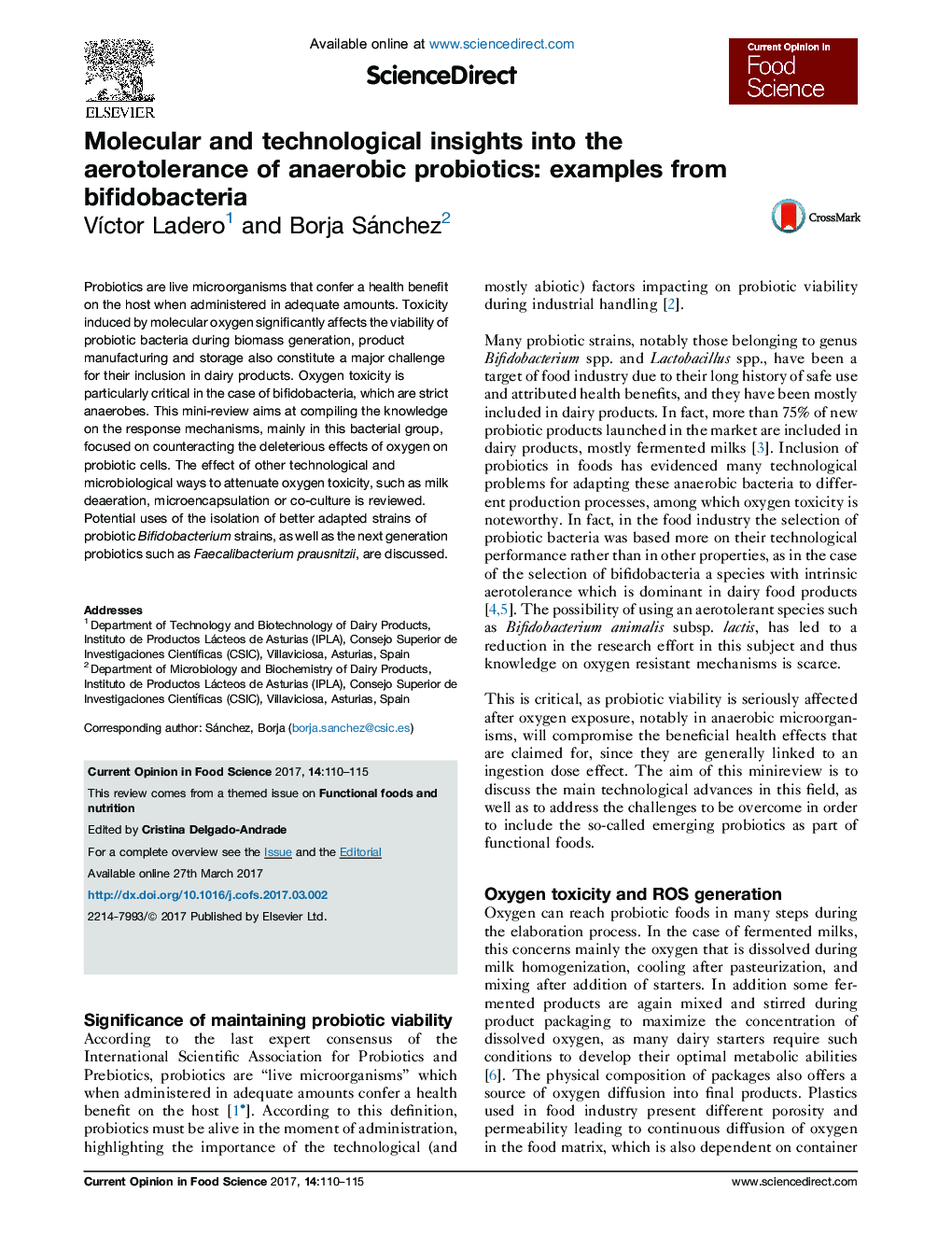| Article ID | Journal | Published Year | Pages | File Type |
|---|---|---|---|---|
| 5520914 | Current Opinion in Food Science | 2017 | 6 Pages |
â¢Research on oxygen resistant mechanisms in probiotic bacteria is scarce in spite of its high impact in viability and performance.â¢Some mechanisms of response to molecular oxygen have been identified in Bifidobacterium.â¢More research is needed to improve survival of emergent probiotic species in food products.
Probiotics are live microorganisms that confer a health benefit on the host when administered in adequate amounts. Toxicity induced by molecular oxygen significantly affects the viability of probiotic bacteria during biomass generation, product manufacturing and storage also constitute a major challenge for their inclusion in dairy products. Oxygen toxicity is particularly critical in the case of bifidobacteria, which are strict anaerobes. This mini-review aims at compiling the knowledge on the response mechanisms, mainly in this bacterial group, focused on counteracting the deleterious effects of oxygen on probiotic cells. The effect of other technological and microbiological ways to attenuate oxygen toxicity, such as milk deaeration, microencapsulation or co-culture is reviewed. Potential uses of the isolation of better adapted strains of probiotic Bifidobacterium strains, as well as the next generation probiotics such as Faecalibacterium prausnitzii, are discussed.
